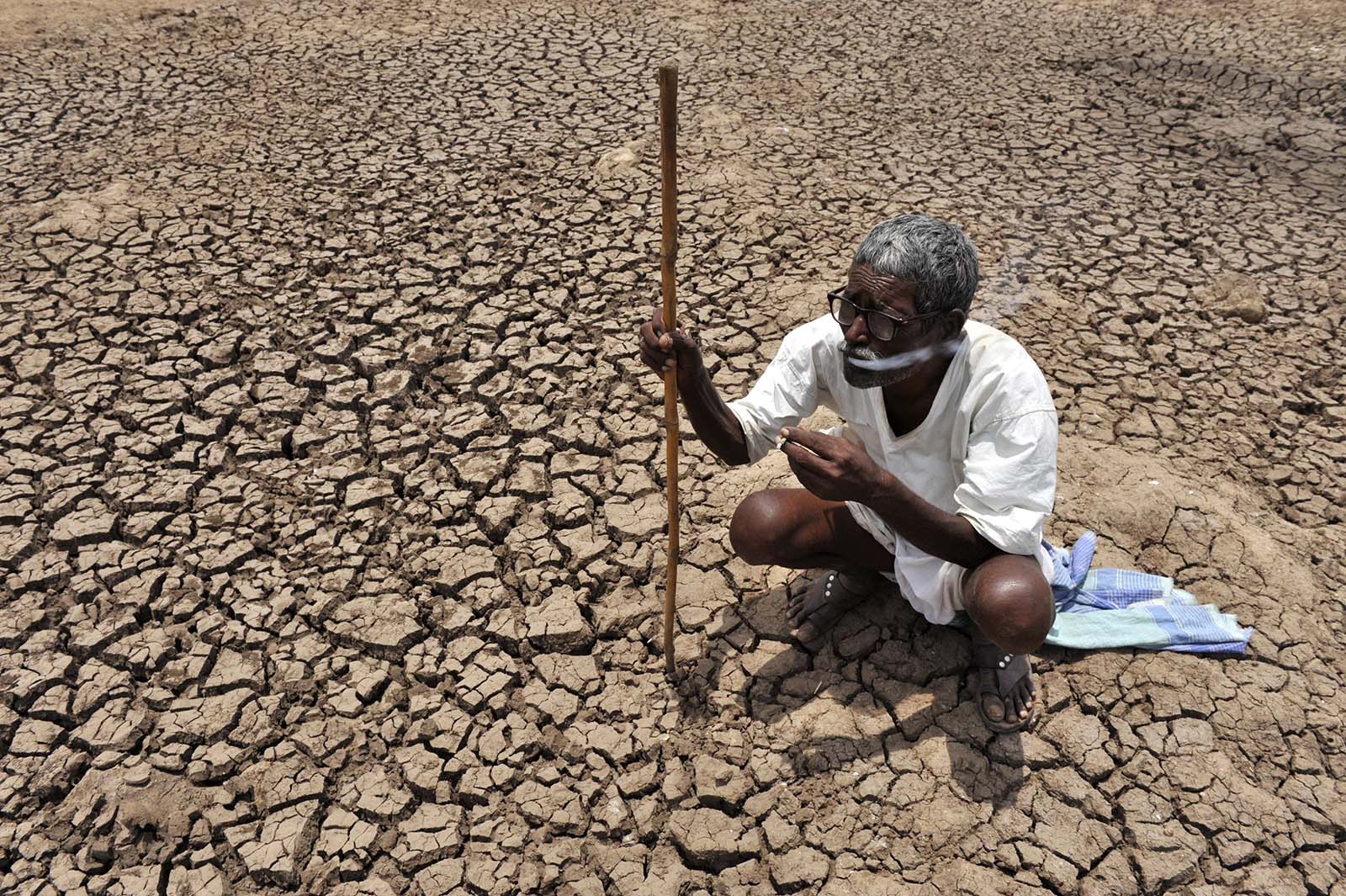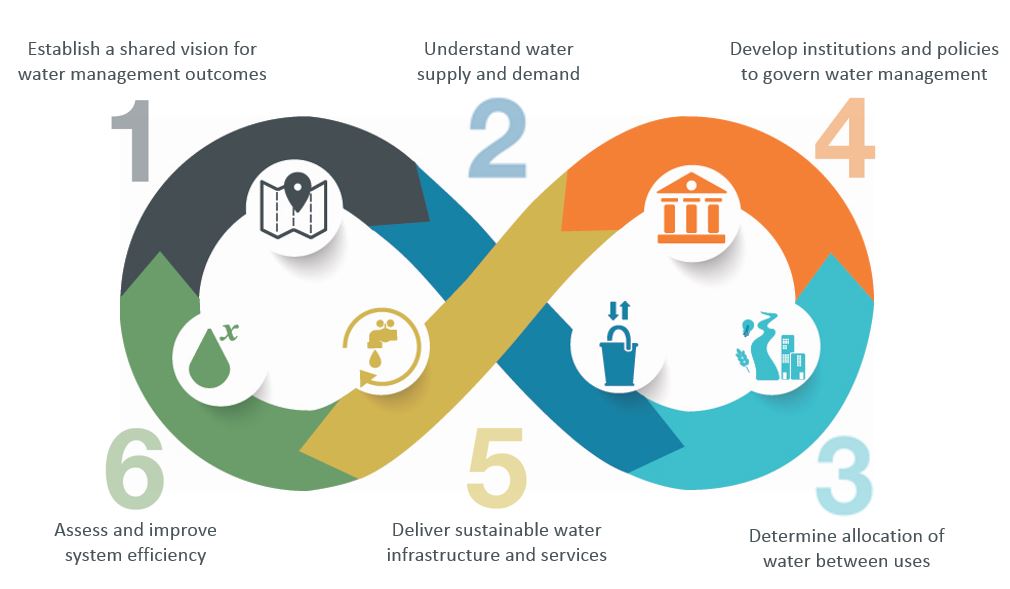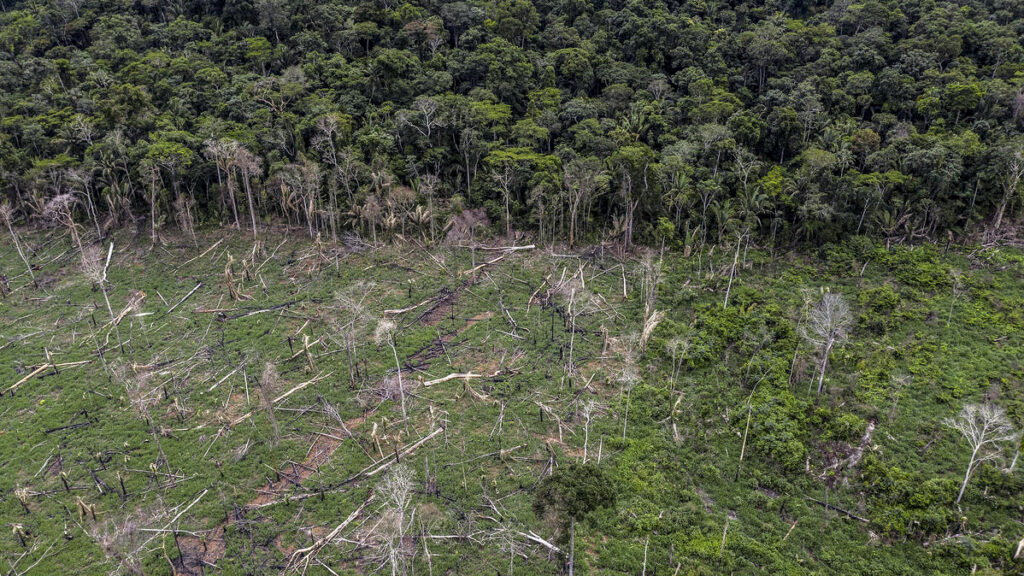6 Principles To Help Asia Overcome Water Scarcity

A farmer rests on his parched land in the state of Uttar Pradesh, India.
Photo: Noah Seelam/AFP/Getty Images
Water scarcity in Asian countries is affecting the lives of hundreds of millions of people. In some regions, droughts and poor water quality have combined to devastating effect.
By 2050, 88 percent of the Asian population is forecast to be impacted by water scarcity or increased water “complexity,” and the United Nations has declared 2018-2028 the decade of “Water for Sustainable Development” in support of meeting the Sustainable Development Goals.
The water-related challenges across Asia are many and various, and if governments in the region do not respond adequately and urgently, there is a risk the region’s socioeconomic development will be stunted, limiting the push toward greater prosperity.
For example, aquifers in India’s upper Ganges, the dominant source of potable water in that region, may run dry within the next 25 years. On the North China Plain, water scarcity is so severe that the Chinese government spent over $80 billion constructing the South-North Water Transfer, the world’s largest and most expensive water megaproject, to move water across thousands of kilometers.
While Asian countries have often faced the dilemma of having too much water (recent flooding in Bangladesh, for example), and many cities now grapple with the problem of water that is too dirty, crises of too little water are increasingly affecting even those countries that have not typically worried much about water availability.
The Urgent Need for Efficient Water Policies
Overcoming water scarcity is about managing and optimizing the use of available water resources across time and space. Technology and infrastructure have a critical role to play and can help to reduce the impacts of water scarcity in some regions. Dams, for example, can even out variability in water availability between seasons, and drip irrigation can dramatically improve efficiency at the farm scale. But, often, there is simply not enough water available to go on using water in the way that we do. More effective water policy and governance will become increasingly important for enabling sustainable allocation of available water resources in the future.
As climate change impacts water availability, appropriate water management in Asia will only become more important to sustaining peace, health and well-being.
In some instances, better water policy may enhance the value of investments in water infrastructure to date or negate or postpone the need to invest further. So significant is the opportunity to do more with less that the World Bank has calculated that the negative effects of water scarcity on the economies of East, South and Central Asia in 2050 could be comprehensively reversed through the adoption of efficient water policies.
Six Principles for Successfully Managing Scarce Water Resources
As part of its contribution to the UN/World Bank High Level Panel on Water, Australia has developed the WaterGuide framework to guide efficient water policy design in regions where water scarcity and variability are a current or future threat to economies, environments and communities.
WaterGuide is based on Australia’s leading knowledge and deep experience in water policy development and implementation. The six-step approach is a direct response to the need for a clear and simple organizing framework for better managing water scarcity and variability through improved governance, policy, planning and management arrangements.
WaterGuide, developed by water consultancy Aither in partnership with the Australian Water Partnership and the Australian Department of Foreign Affairs and Trade, provides a framework to assist decision-makers to diagnose strengths, weaknesses and gaps in current water planning, allocation and use arrangements and to design a roadmap for improved water policy and management.
The six principles of WaterGuide
How Can Asian Governments Use WaterGuide?
WaterGuide is now being used to structure high-level policy dialogues in multiple countries around the world. While the report and framework are freely available, the real value of the WaterGuide approach lies in convening groups of key decision-makers to develop strategic policy responses to rapidly evolving water scarcity crises.
The first use of WaterGuide outside Australia occurred in Jordan in August 2017. Jordan is one of the most water-scarce countries in the world, and its limited water supplies are under significant pressure from the effects of population growth, climate change, and the current refugee crisis. To meet growing demand, Jordan is becoming increasingly reliant on non-renewable groundwater resources, which are being rapidly depleted. We, with Australian and international colleagues, worked with senior Jordanian water policymakers to identify priority areas for policy development and reform. These reform options are now being scoped and further analyzed under the umbrella of the Jordan-Australia Water Reform Collaboration.
As climate change impacts water availability, appropriate water management in Asia will only become more important to sustaining peace, health and well-being.
Now more than ever, experts and policymakers need to collaborate, to share proven solutions, to face up to the new challenges that lie ahead, and to bring diverse groups of stakeholders into the conversation to better understand what people want from Asia’s freshwater resources. By doing so, they empower an important stakeholder that many miss: The community at large.







